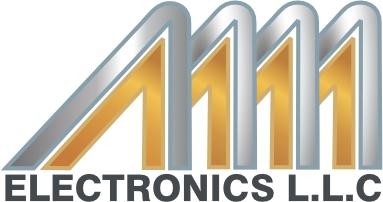Siemens Simatic Controllers
Brands
Siemens S7-1500 AI 4x U/I/R/RTD/TC ST Analog input/output
In stock
Siemens analog output module AQ 4xU/I ST 6ES7532-5HF00-0AB0
In stock
SIMATIC S7-1500 Analog input module AI 8xU/I/R/RTD BA 6ES7531-7QF00-0AB0
In stock
Siemens Analog input module AI 4xU/I/RTD/TC ST 6ES7531-7QD00-0AB0
In stock
Siemens analog input module AI 8xU/R/RTD/TC HF 6ES7531-7PF00-0AB0
In stock
SIMATIC S7-1500 Analog input module AI 8xU/I HS 6ES7531-7NF10-0AB0
In stock
SIMATIC S7-1500 analog input module AI 8xU/I HF 6ES7531-7NF00-0AB0
In stock
No subcategories found.
Siemens Simatic controllers are a series of programmable logic controllers (PLCs) and automation systems that have been widely recognized for their reliability, scalability, and integration capabilities. These controllers are part of Siemens’ comprehensive industrial automation portfolio, designed to meet the demands of various industrial applications, from manufacturing and processing to complex control systems.
Key Features of Siemens Simatic Controllers
- Modularity:
- Simatic controllers are known for their modular design, allowing users to customize and expand their systems according to specific process needs. This flexibility facilitates easy integration with existing systems and future scalability.
- Robust Software Integration:
- These controllers work seamlessly with Siemens’ TIA Portal (Totally Integrated Automation Portal), which provides an integrated engineering framework that simplifies the programming, testing, and maintenance of automation projects. The software supports a variety of programming languages such as Ladder Logic, Function Block Diagram, and Structured Text.
- Wide Range of Models:
- The Simatic line includes several models, such as the S7-1200 for basic applications, S7-1500 for advanced applications, and S7-300/400 series for complex and demanding processes. This variety ensures that there is a Simatic controller suitable for nearly any automation task.
- Communication Capabilities:
- Simatic controllers offer robust communication options, including support for standard industrial protocols like PROFINET, PROFIBUS, and OPC UA. This connectivity enables easy data exchange and integration with other devices and systems, facilitating Industry 4.0 implementations.
- High Reliability and Durability:
- Designed to withstand harsh industrial environments, Simatic controllers are built to offer high reliability and durability, with features that ensure continued operation under extreme conditions, such as wide temperature ranges and exposure to dust and moisture.
Applications
Simatic controllers are employed across a wide range of industries due to their versatility:
- Manufacturing: Automating production lines, assembly operations, and robotic systems.
- Automotive: Controlling and monitoring automotive manufacturing processes.
- Food and Beverage: Managing processes in production, packaging, and storage facilities.
- Pharmaceuticals: Ensuring precise control in drug production and packaging.
- Water and Wastewater Treatment: Automating treatment processes and infrastructure management.
- Energy: Monitoring and controlling energy distribution and generation, including renewables.
Benefits
The adoption of Siemens Simatic controllers offers significant benefits:
- Increased Productivity: Automation of repetitive tasks and improved efficiency of industrial processes.
- Enhanced Quality Control: Consistent operations and monitoring help maintain product quality standards.
- Energy Efficiency: Optimized processes reduce unnecessary energy consumption, lowering operational costs.
- Safety: Improved safety in hazardous environments through precise control and reduced human intervention.
Future Prospects
The future development of Siemens Simatic controllers is likely to focus on enhancing connectivity, smart analytics, and cloud integration. With the rise of digitalization and smart industry practices, Siemens is expected to further integrate AI and machine learning capabilities to provide smarter automation solutions that can predict maintenance needs and optimize operations autonomously.

